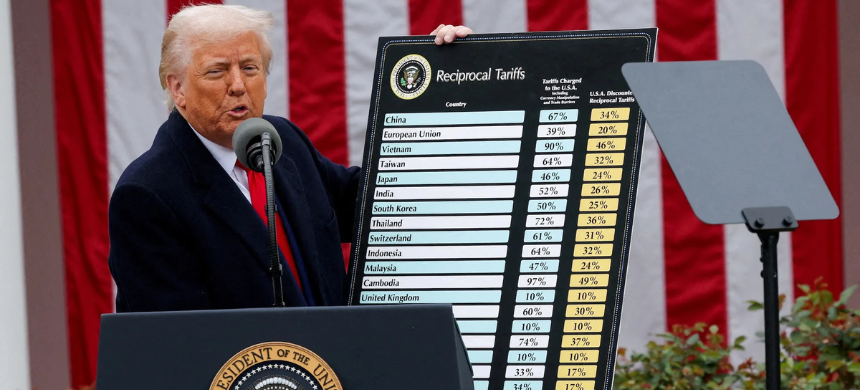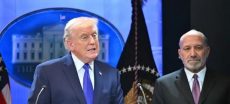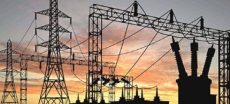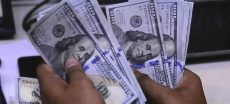Global Backlash Erupts as Trump’s Tariff Policy Triggers Fears of a Trade War and Economic Downturn
Countries worldwide are threatening to escalate a trade war with the United States after President Donald Trump announced sweeping new tariffs, sparking widespread concern over rising prices and supply chain disruptions in the world’s largest consumer market.
The tariff announcement on Wednesday led to a sharp plunge in global financial markets on Thursday, with world leaders criticizing the move as a dramatic departure from decades of trade liberalization.
Amid mixed signals from the White House, President Trump stated the tariffs provide the U.S. with “great power to negotiate.” However, officials including Commerce Secretary Howard Lutnick and senior trade adviser Peter Navarro insisted the tariffs are permanent and not a negotiation tactic.
Read More: Canada Retaliates Against Trump with $155 Billion Tariffs
The tariffs include a 10% baseline duty on all imports, with significantly higher tariffs targeting major U.S. trading partners. This could cause prices for U.S. consumers to spike — with some projections estimating that a high-end iPhone could cost nearly $2,300, according to Rosenblatt Securities.
Global Markets and Businesses React
Major companies quickly began adjusting to the tariff shock. Stellantis announced temporary layoffs in the U.S. and plant closures in Canada and Mexico, while General Motors pledged to boost U.S. production. Tech and consumer stocks were hit hard — Apple shares dropped 9%, while Nike fell by 14%.
The U.S. stock market saw one of its worst days since the pandemic:
- Dow Jones: ↓ 4%
- S&P 500: ↓ 5%
- Nasdaq: ↓ 6%
In Asia, Japan’s Nikkei dropped by 1.85%, compounding Thursday’s 2.8% loss. Chinese markets were closed for a public holiday.
International Condemnation and Retaliatory Plans
Leaders across the globe condemned the U.S. tariffs:
- Canada’s PM Mark Carney criticized the U.S. for abandoning its traditional role in promoting global economic cooperation.
- China and the European Union pledged retaliatory tariffs, with France’s President Emmanuel Macron urging a halt to EU investment in the U.S.
- Japan’s PM Shigeru Ishiba described the situation as a “national crisis.”
- Other countries including South Korea, Mexico, India, and Japan are holding off on retaliation, hoping for concessions.
Trump imposed the following targeted tariffs:
- China: 54%
- European Union: 20%
- Japan: 24%
- South Korea: 25%
- Taiwan: 32%
While Canada and Mexico avoided new targeted tariffs, they continue to face existing 25% duties and now additional auto import tariffs.
Experts Warn of Global Economic Risks
According to IMF Managing Director Kristalina Georgieva, the tariffs pose a “significant risk” to the global economic outlook, particularly amid already sluggish growth. She urged all parties to work constructively to de-escalate trade tensions.
Capital Alpha’s James Lucier criticized the tariff strategy, saying it lacks a credible basis for serious trade negotiations.
Economists warn that the tariffs could:
- Reignite inflation
- Raise the risk of a U.S. recession
- Increase costs for the average American household by thousands of dollars
- Alienate allies and weaken efforts to counter China strategically
White House Divided, Uncertainty Ahead
While White House officials insist the tariffs are here to stay, Trump signaled possible flexibility, saying they’re a tool for negotiation. The reciprocal tariffs are not set to take effect until April 9, leaving room for potential changes.
Vice President JD Vance defended the plan, framing it as essential for national security and the revitalization of domestic manufacturing.
Conclusion
With financial markets in turmoil and global leaders on edge, the U.S. tariff policy has created unprecedented uncertainty. As retaliatory measures loom, businesses, consumers, and governments brace for a turbulent chapter in international trade.











